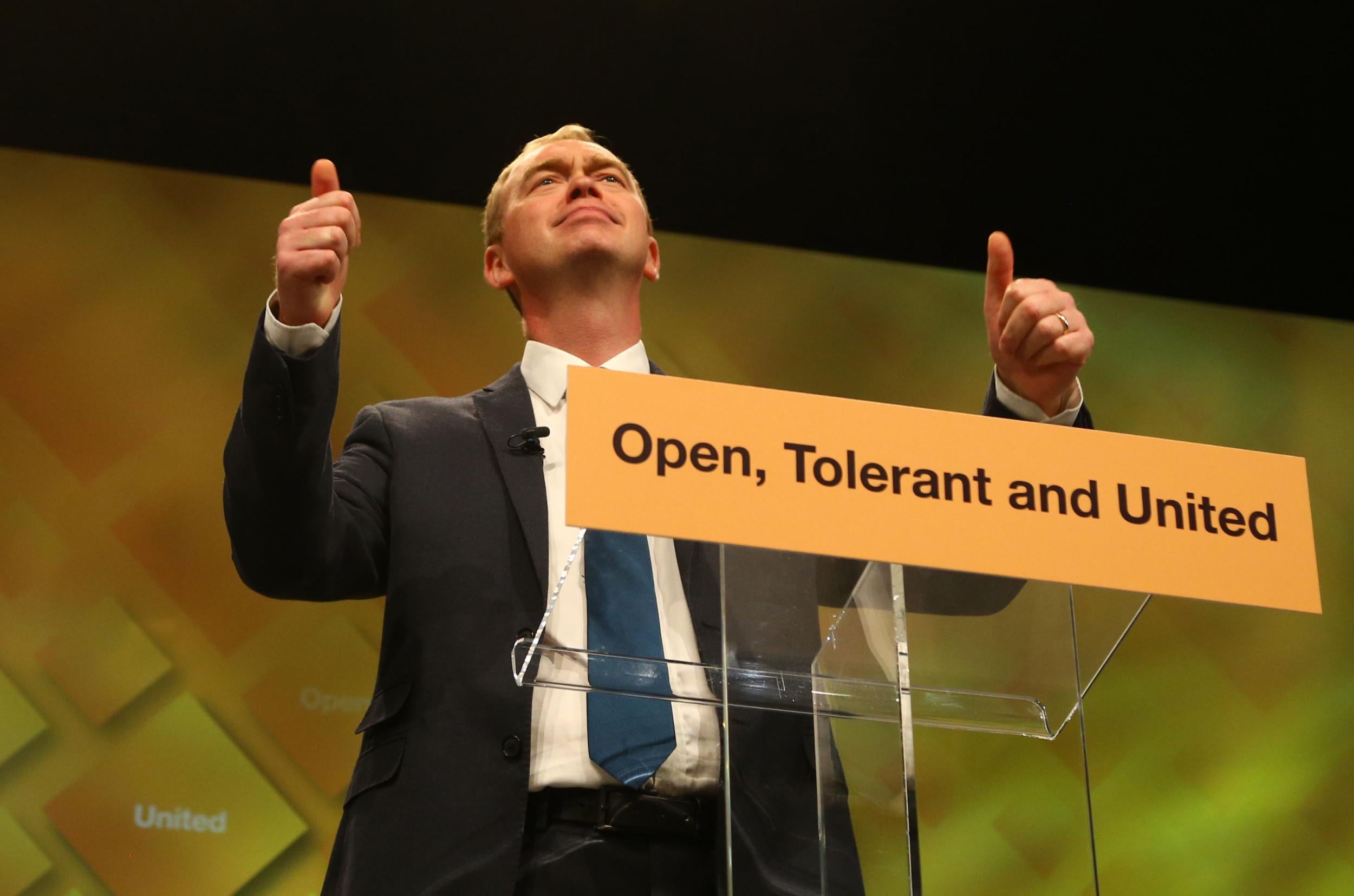Labour has hopped into bed with the Tories over Brexit – and the Lib Dems couldn't be happier
Membership has risen from 45,000 to 85,000 since the 2015 election, the latest surge after Jeremy Corbyn decided to support the Bill triggering Brexit negotiations. 'We don’t get hammered over tuition fees on the doorstep anymore,' says one Lib Dem official. 'Brexit means that memories of the Coalition have faded'


What’s the point of the Liberal Democrats? It was a fair question when they were reduced to eight MPs at the 2015 election, and launched the #libdemfightback hashtag just to keep their spirits up.
But, just as events conspired against the Lib Dems when the 2010 election result pushed them into coalition with the Conservatives, the Brexit vote has given them a new lease of life. The 48 per cent is a big target audience when you are on 8 per cent in the opinion polls.
Labour’s leadership is hard left and, for now, appears to condone the Tories’ drift to hard Brexit. The Lib Dems can turn the tables on the Labour people who cannot forgive them for hopping into bed with the Tories in 2010; they can now claim Labour has done the same on Brexit. At the same time, Theresa May’s centre ground rhetoric has not yet been matched by reality.
So there is a gap in the market and the Lib Dems are starting to fill it. Membership has risen from 45,000 to 85,000 since the 2015 election, the latest surge after Jeremy Corbyn decided to support the Bill triggering Brexit negotiations. The Lib Dems have won a string of council by-elections and their victory in Richmond Park showed they now have two vital ingredients: relevance and credibility. The latest poll puts them on 13 per cent.
Having won over Tory Remainers in Richmond, the Lib Dems must now appeal to Labour Remainers in the Manchester Gorton by-election, likely to be held on 4 May. On the face of it, Labour should comfortably retain a seat where the late Gerald Kaufman had a 24,079 majority in 2015. The Lib Dems came fifth. But the constituency was 62 per cent for Remain, so the Lib Dems, who came second there in 2010, hope to run Labour close, even if victory proves beyond them.
On Sunday, Tim Farron will tell his party at its spring conference in York to aim high, even suggesting that, with Labour off the pitch, it can become the alternative government. That will be a very tall order with just nine MPs, which means that Farron and his party still lack the visibility that a dramatic breakthrough would require. Voters are still not sure what the Lib Dems stand for, other than opposing Brexit.
They know they need to be more than a single issue party, pointing to health spokesman Norman Lamb’s plan for a 1p rise in income tax for the NHS, and an eventual dedicated health and social care tax. Brexit will have happened by a 2020 election; the Lib Dems cannot risk fighting the last war.
Yet the party is undoubtedly back in the game, and that is welcome in the Brexit-Trump era. Brexit has been a reset button for politics. “We don’t get hammered over tuition fees on the doorstep anymore,” says one Lib Dem official. “Brexit means that memories of the Coalition have faded.”
Although some voters will not forgive, some of the same people will not forgive Corbyn for making the Brexit process so easy for May. Where else can they go, other than to the Lib Dems?
There are dangers in Farron saying, as he will tell Lib Dem delegates, that he is “incredibly proud” to be the nation’s Remoaner-in-Chief. He intends not to preach only to the converted, the 25 per cent who oppose Brexit, but to reach the estimated 40 per cent who want soft Brexit with the UK remaining in the Single Market. He is never going to appeal to the one in three people who want May to get on with it, and back a hard Brexit.
Labour and the Tories will underestimate Farron’s party at their peril. Corbyn has his eyes on Ukip, and its potential threat to Labour in the north. May has hers on the Daily Mail and The Sun, hence the U-turn over national insurance contributions and the slide to hard Brexit.
Both leaders create the conditions for a potential Lib Dem revival. The two biggest parties were designed for a left-right dividing line now blurred by the unique choice voters enjoyed on Brexit – between open and closed; internationalism and isolationism – which gives clearer definition to the Lib Dems while dividing Labour and the Tories.
Indeed, hard Brexit is only one battle in a wider war for liberals to fight against a right-wing populism embracing protectionism, anti-immigration, harsh treatment of refugees, opposing international aid and climate change scepticism. The hard Brexit brigade will try to push May down that path.
Farron’s ambition to turn the Lib Dems into a government-in-waiting will be very hard to achieve. A more realistic goal in the short term, with Labour absent without leave, is to be at the forefront of an anti-Tory coalition, which will be the only way to defeat them anytime soon. It is easy to scoff at the Lib Dems, but the country needs them now.

Join our commenting forum
Join thought-provoking conversations, follow other Independent readers and see their replies